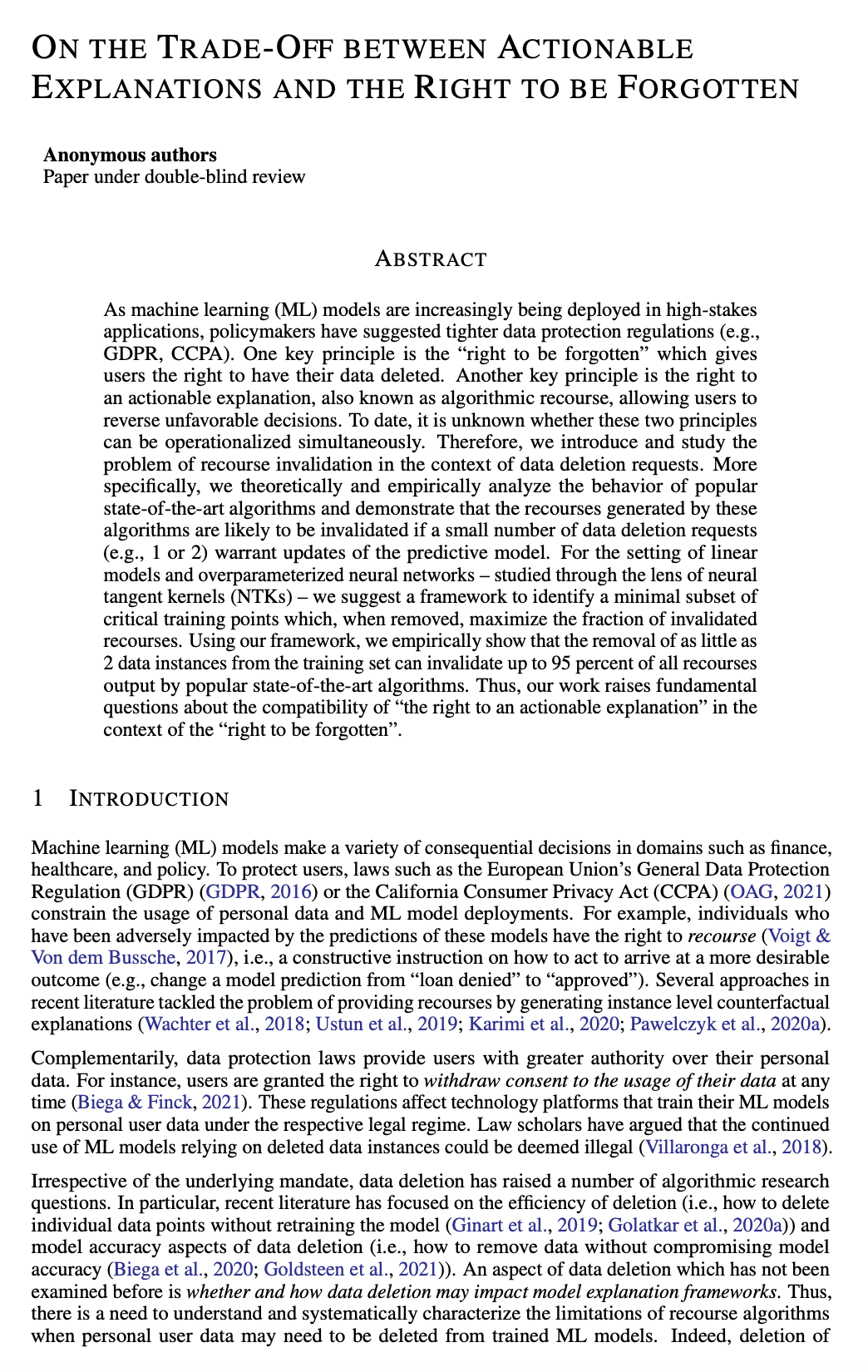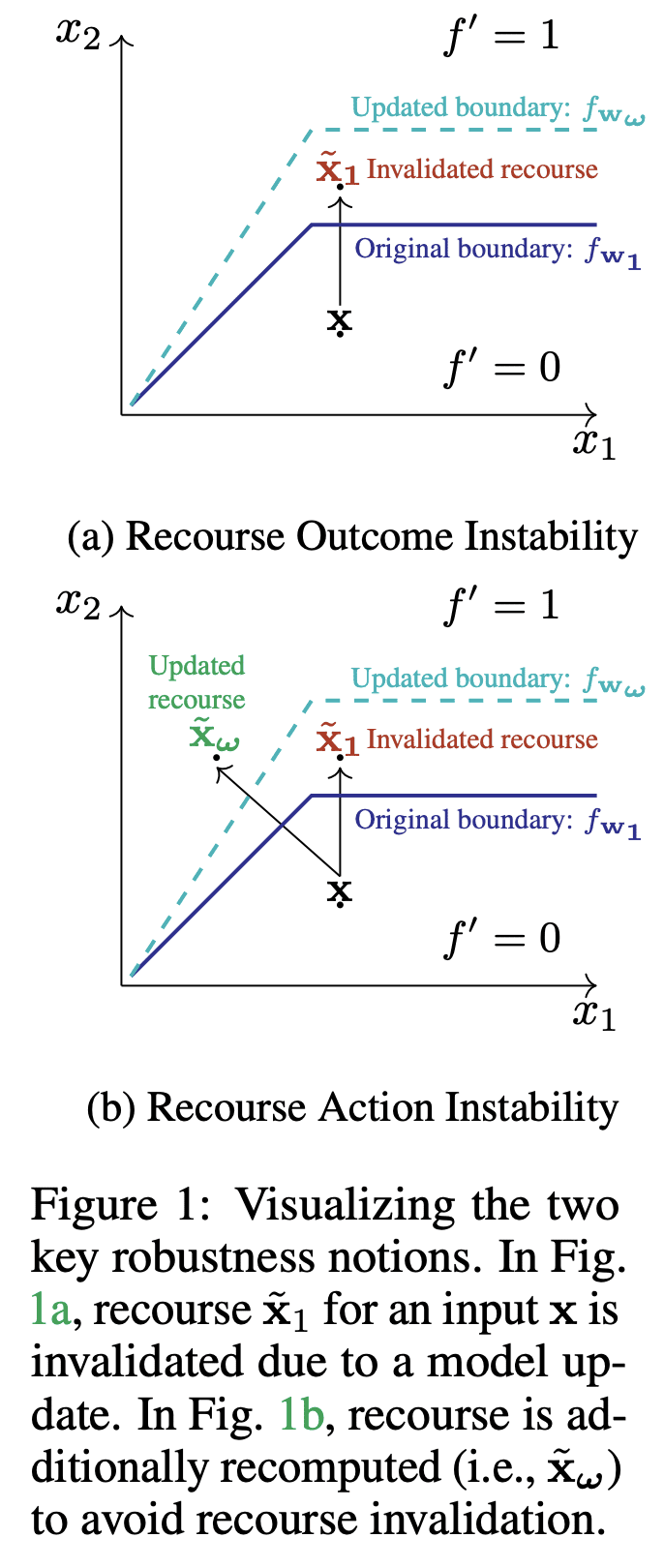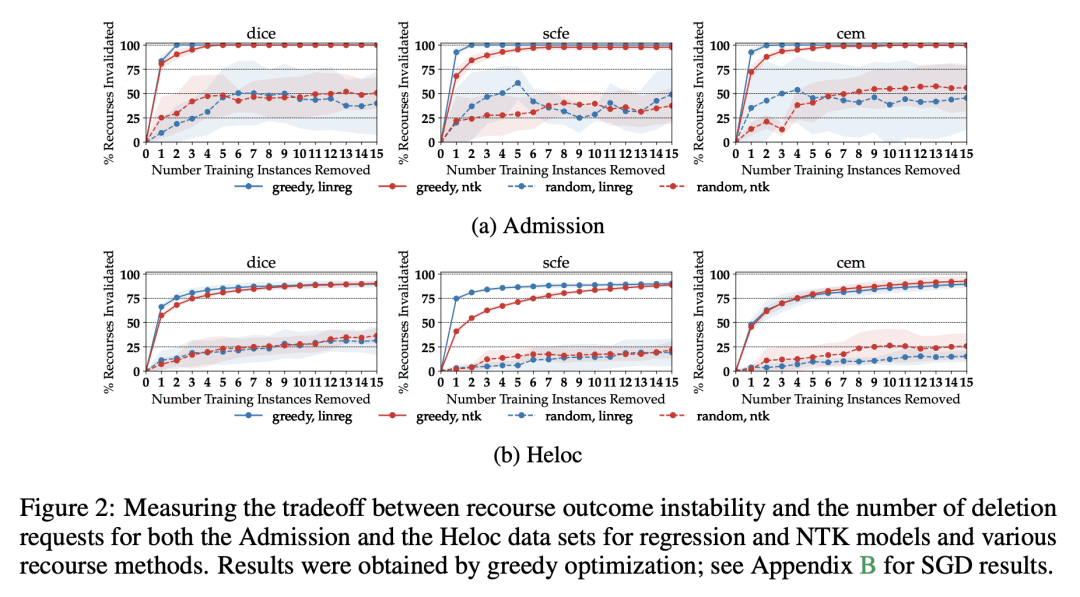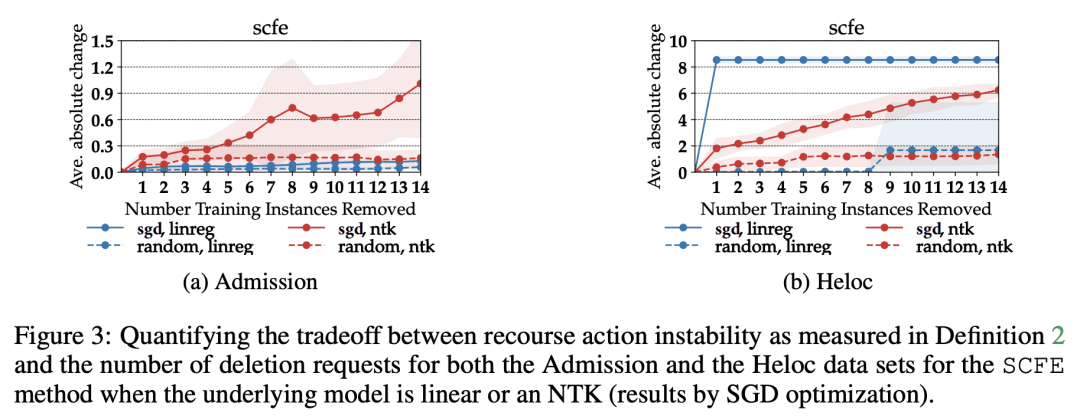来自今天的爱可可AI前沿推介
1、[LG] On the Trade-Off between Actionable Explanations and the Right to be Forgotten
M Pawelczyk, T Leemann, A Biega, G Kasneci
Harvard University & University of Tuebingen & Max Planck Institute for Security and Privacy
可诉解释权和被遗忘权之间的权衡
要点:
-
介绍了数据删除请求背景下的追索权无效问题,提出了关于被遗忘权背景下可诉解释权的兼容性的基本问题。 -
从理论上分析了当数据属于训练集的用户提交删除请求时,决定追索权不稳定的因素; -
提出了一个优化框架,以确定一小部分关键的训练数据点,这些数据点一旦被删除,大部分发出的追索权就会失效,并在多个真实世界的数据集上进行了广泛的实验,以显示其发现的实际意义。
一句话总结:
分析了可诉解释权和被遗忘权之间的权衡,并提供算法找到训练数据点的一个关键子集,当删除这些数据点时,将导致资源的最大化失效。
摘要:
随着机器学习(ML)模型越来越多地被部署在高风险应用中,策略制定者提出了更严格的数据保护法规(如GDPR、CCPA)。一个关键原则是"被遗忘的权利",它赋予用户删除其数据的权利。另一个关键原则,是获得可诉解释权,也被称为算法追索权,允许用户扭转不利的决定。到目前为止,这两个原则是否可以同时操作还不得而知。本文引入并研究了在数据删除请求的背景下追索权无效的问题。本文从理论和经验上分析了流行的最先进的算法的行为,并证明如果有少量的数据删除请求(一两个)需要更新预测模型,那么这些算法产生的追索权就有可能被废止。对于线性模型和过参数化的神经网络的设置——通过神经切线核(NTK)的角度进行研究——提出了一个框架,以确定关键训练点的最小子集,当这些训练点被删除时,无效资源的比例最大化。使用该框架,从经验上表明,从训练集中删除少至2个数据实例可以使流行的最先进的算法输出的所有资源中的95%无效。因此,本文提出关于在 "被遗忘权"背景下"可诉解释权"的兼容性的基本问题,同时也提供了关于追索权鲁棒性决定因素的建设性见解。
As machine learning (ML) models are increasingly being deployed in high-stakes applications, policymakers have suggested tighter data protection regulations (e.g., GDPR, CCPA). One key principle is the “right to be forgotten” which gives users the right to have their data deleted. Another key principle is the right to an actionable explanation, also known as algorithmic recourse, allowing users to reverse unfavorable decisions. To date it is unknown whether these two principles can be operationalized simultaneously. Therefore, we introduce and study the problem of recourse invalidation in the context of data deletion requests. More specifically, we theoretically and empirically analyze the behavior of popular state-of-the-art algorithms and demonstrate that the recourses generated by these algorithms are likely to be invalidated if a small number of data deletion requests (e.g., 1 or 2) warrant updates of the predictive model. For the setting of linear models and overparameterized neural networks – studied through the lens of neural tangent kernels (NTKs) – we suggest a framework to identify a minimal subset of critical training points which, when removed, maximize the fraction of invalidated recourses. Using our framework, we empirically show that the removal of as little as 2 data instances from the training set can invalidate up to 95 percent of all recourses output by popular state-of-the-art algorithms. Thus, our work raises fundamental questions about the compatibility of “the right to an actionable explanation” in the context of the “right to be forgotten” while also providing constructive insights on the determining factors of recourse robustness.
论文链接:https://openreview.net/forum?id=HWt4BBZjVW



内容中包含的图片若涉及版权问题,请及时与我们联系删除



评论
沙发等你来抢